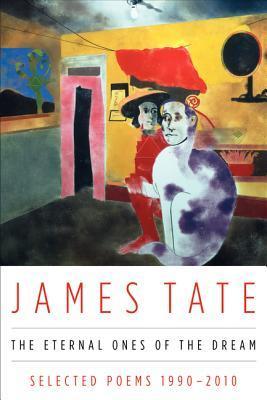
“Tate’s poems are meditative, introverted, self-reliant, funny, alarming, strange, difficult, intelligent, and beautifully crafted.” — New York Times The Eternal Ones of the Dream is a breathtaking collection of poems from the last two decades of work of one of modern American poetry’s major artists, Pulitzer Prize and National Book Award winner James Tate. Tate’s remarkable work—filled with dark wit, dry humor, and deceptive simplicity—is considered among the most accessible poetry written in the last several decades, and it has inspired acclaimed poet W.S. Merwin to write, “Mr. Tate’s gift is such that many of [his] poems move me at least to plain envy of what he can do.”
Author

James Vincent Tate was born in Kansas City, Missouri. He taught creative writing at the University of California, Berkeley and Columbia University, and at the University of Massachusetts, Amherst, where he worked since 1971. He was a member of the poetry faculty at the MFA Program for Poets & Writers, along with Dara Wier and Peter Gizzi. Dudley Fitts selected Tate's first book of poems, The Lost Pilot (1967) for the Yale Series of Younger Poets while Tate was still a student at the University of Iowa Writers' Workshop; Fitts praised Tate's writing for its "natural grace." Despite the early praise he received Tate alienated some of his fans in the seventies with a series of poetry collections that grew more and more strange. He published two books of prose, Dreams of a Robot Dancing Bee (2001) and The Route as Briefed (1999). His awards include a National Institute of Arts and Letters Award, the Wallace Stevens Award, a Pulitzer Prize in poetry, a National Book Award, and fellowships from the Guggenheim Foundation and the National Endowment for the Arts. He was also a Chancellor of the Academy of American Poets. Tate's writing style is difficult to describe, but has been identified with the postmodernist and neo-surrealist movements. He has been known to play with phrases culled from news items, history, anecdotes, or common speech; later cutting, pasting, and assembling such divergent material into tightly woven compositions that reveal bizarre and surreal insights into the absurdity of human nature.